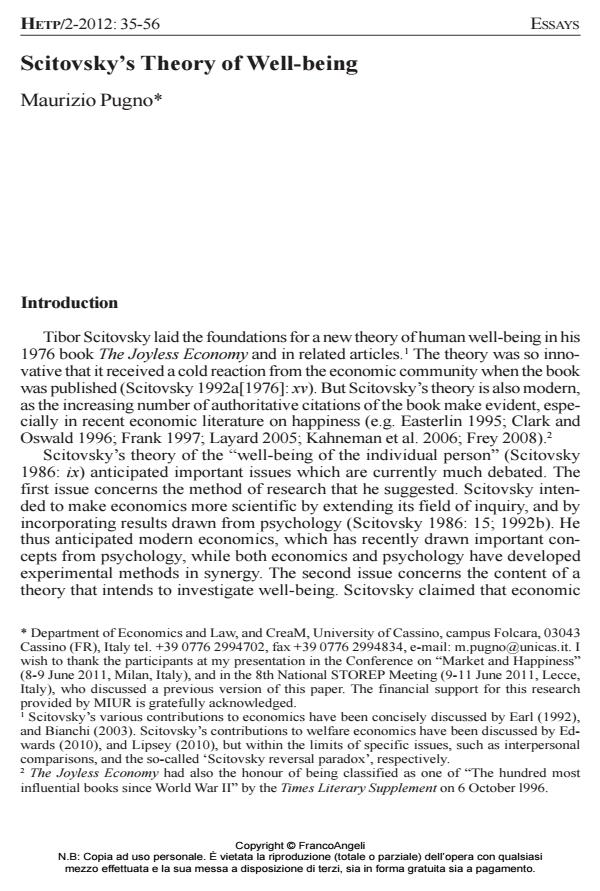Scitovsky’s Theory of Well-being
Journal title HISTORY OF ECONOMIC THOUGHT AND POLICY
Author/s Maurizio Pugno
Publishing Year 2012 Issue 2012/2 Language English
Pages 22 P. 35-56 File size 117 KB
DOI 10.3280/SPE2012-002002
DOI is like a bar code for intellectual property: to have more infomation
click here
Below, you can see the article first page
If you want to buy this article in PDF format, you can do it, following the instructions to buy download credits

FrancoAngeli is member of Publishers International Linking Association, Inc (PILA), a not-for-profit association which run the CrossRef service enabling links to and from online scholarly content.
Scitovsky laid the foundations for a new theory of people’s well-being in his 1976 book The Joyless Economy. This paper, after a reconstruction of Scitovsky’s analysis throughout the book and his related writings, shows that supporting evidence can be found in recent economic and psychology literature. Secondly, the paper shows how Scitovsky’s theory helps understand the partial nature of economic welfare with respect to human welfare, and the widening gap between the two, which is also recently known in the version given by Easterlin. Thirdly, the paper proposes reconciliation, based on Scitovsky’s theory, between the hedonic and eudaimonic approach to happiness, recently taken up, respectively, by Kahneman and Sen.
Keywords: Scitovsky, well-being, happiness, economics and psychology, consumption
Jel codes: A12, B31, D11, D60, J2
- The Magic of Storytelling: How Curiosity and Aesthetic Preferences Work Marina Bianchi, in Economics 20140044/2014
DOI: 10.5018/economics-ejournal.ja.2014-44
Maurizio Pugno, Scitovsky’s Theory of Well-being in "HISTORY OF ECONOMIC THOUGHT AND POLICY" 2/2012, pp 35-56, DOI: 10.3280/SPE2012-002002